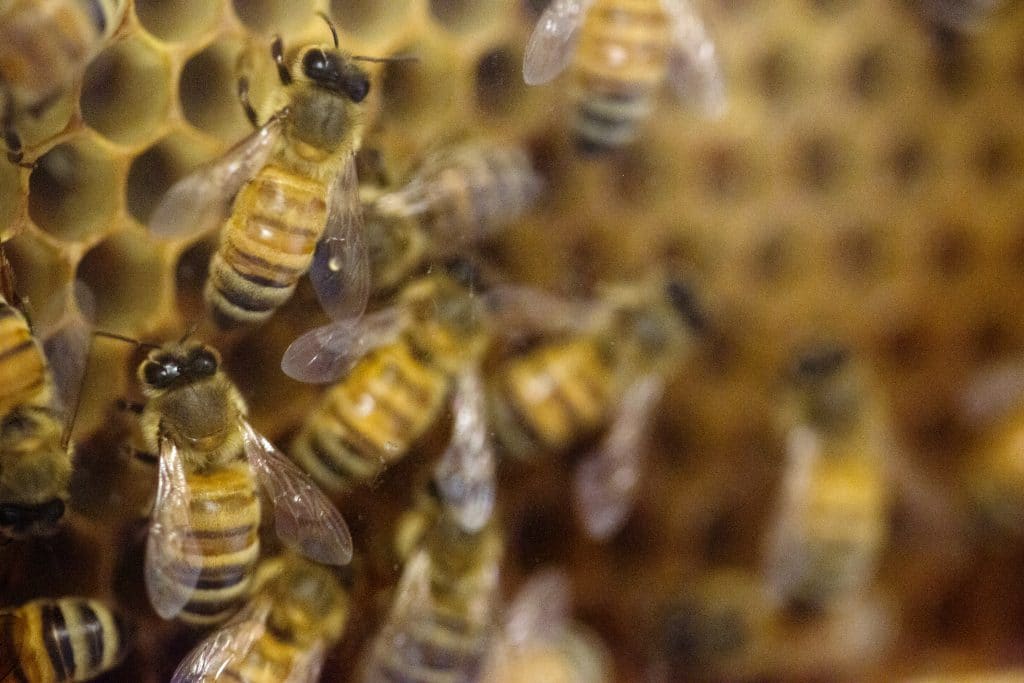
To make a prairie it takes a clover
and one bee,
One clover, and a bee,
And revery
-Emily Dickinson
While waxing poetic certainly romanticizes our beloved bee, here’s the hard truth: bee populations are in peril. Extinctions are occurring at unprecedented rates, in large part due to the impacts of humans. Take a moment to comb through these facts: close to 35% of invertebrate pollinator species, particularly bees and butterflies, and approximately 17% of vertebrate pollinator species, such as bats, face extinction globally.
Pollination is fundamental for the survival of our ecosystems. According to the United Nations, nearly 90% of the world’s wild flowering plant species depend entirely, or at least in part, on animal pollination, along with more than 75% of the world’s food crops and 35% of global agricultural land. Not only do pollinators contribute directly to food security, but they are key to conserving biodiversity. Bees native to Maine, such as the Orange-belted Bumblebee (Bombus ternarius), are integral components of this conservation.
 To raise awareness of the importance of pollinators, the threats they face, and their contribution to sustainable development, the United Nations designated May 20 as World Bee Day. Adopted in 2017, the goal is “to strengthen measures aimed at protecting bees and other pollinators, which would significantly contribute to solving problems related to the global food supply and eliminate hunger in developing countries.”
To raise awareness of the importance of pollinators, the threats they face, and their contribution to sustainable development, the United Nations designated May 20 as World Bee Day. Adopted in 2017, the goal is “to strengthen measures aimed at protecting bees and other pollinators, which would significantly contribute to solving problems related to the global food supply and eliminate hunger in developing countries.”
You can take the “sting” out of this population decline by:
- planting a diverse set of native plants, which flower at different times of the year and Maine Audubon’s Native Plant Finder can help you choose the right species;
- buying honey from local farmers;
- buying goods produced using sustainable agricultural practices;
- avoiding pesticides, fungicides, or herbicides in our gardens;
- protecting wild bee colonies when possible;
- making water available outside;
- helping to sustain forest ecosystems; and
- raising awareness around us by sharing this information within our communities and networks
Back at the end of April, Maine Audubon’s Nick Lund moderated an online presentation for Martin’s Point HealthCare, featuring an excellent presentation on bees from Portland-based beekeeper Thalassa Raash. Thalassa runs Keepers beekeeping service. It was an excellent presentation, full of great information (have you ever seen the Egyptian carvings that represents the first known image of beekeeping?) and great questions from an engaged audience. For a great way to honor World Bee Day, watch the whole presentation below!
